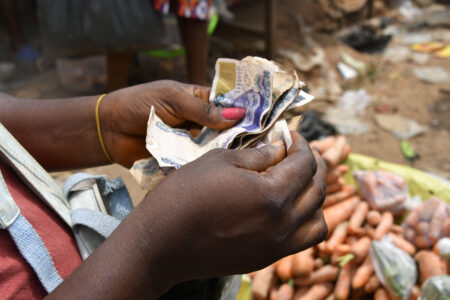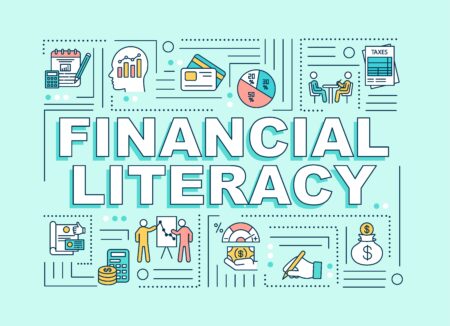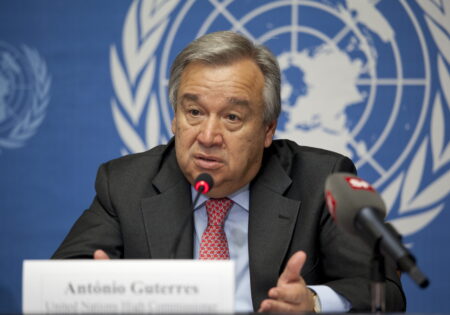- Africa’s new dawn: the rising role of digital and AI in agriculture
- Can Dangote Refinery Transform Africa Energy Ambition
- Gallup Survey: 80 per cent of Kenyan Workers Are Disengaged and Seek New Opportunities
- Madagascar Man Freed from 5KG Tumor After 15-Year Struggle
- How women in Africa are perceived and treated
- Sugar consumption in Kenya to Increase to 1.23 Million Tonnes
- Can Somalia and Turkey Oil deal Bring Change in Somaliland
- Remittances to Kenya dropped to $371.6 million in June, marking a six month low
Browsing: interest rates
- There is a debt crisis in Africa as countries struggle to repay international loans.
- According to the World Bank, nine African countries entered 2024 in debt distress, with another 15 at high risk of distress and 14 more categorised as moderate risk.
- According to the United Nations, Africa’s public debt will stay above pre-pandemic levels in 2024 and 2025.
At 4 per cent, Africa is projected to be the second fastest-growing economic region in the world in 2024, according to a report by the International Monetary Fund (IMF). However, behind the headline figure is a less optimistic reality.
Many African countries have suffered from slow post-COVID-19 recovery, climate change shocks, worsening food security situation, political instability, weak global growth, and high-interest rates. These economic shocks have pushed over 55 million people into poverty since 2020. The situation is increasingly alarming as more than half of the continent’s countries are in …
- Kenya’s economic resurgence in 2024 proving a reality following a notable upturn in recent months, marked by positive indicators across sectors.
- According to CBK, leading indicators point to the continued strong performance of the Kenyan economy in the first quarter of 2024.
- According to the World Bank, Kenya’s economic growth is projected to be 5.2 per cent, boosted by increased investment in the private sector as the government reduces its activities in the domestic credit market.
A strong rebound
Kenya’s economic prospects are looking brighter, attributed to the interventions by the World Bank and the International Monetary Fund, which have played a massive role in easing volatility witnessed less than three months ago.
Major economic indicators in the country show that confidence is slowly creeping back after the government secured the International Monetary Fund’s facility to pay back the Eurobond.
The repayments had triggered volatility in financial markets, including the …
- Following a slow recovery from the debilitating impact of COVID-19, Africa’s economic growth declined to an estimated 3.8 per cent in 2022 and later deteriorated to 3. (https://rescueresponse.com) 3 per cent in 2023.
- Africa is not immune to economic shocks and has recently faced a multi-crisis situation.
- African countries have posted more than 5 per cent output expansions in 2024.
Africas economic outlook
Before COVID-19, Africa experienced 20 years of solid growth and made tangible economic and social progress. However, the COVID crisis brought this progress to an abrupt halt, and many countries, which are under increasingly tight budget constraints, struggled to invest in essential sectors amidst recovering from the aftermath of the health crisis.
Following a slow recovery from the debilitating impact of COVID-19, Africa’s economic growth declined to an estimated 3.8 per cent in 2022 and later deteriorated to 3.3 per cent in 2023.
However, according …
- The Central Bank of Nigeria has decided to increase the minimum capital requirement for lenders to bolster the country’s economy.
- Nigerian banks now face weaker capital ratios and higher impaired loans.
- The last time Nigeria recapitalised its banking sector dates back to 2004.
Minimum capital requirement for lenders
Following the surge in inflation levels, a deteriorating economy, and the plummeting of the Naira, the CBN has decided to increase the minimum capital requirement for lenders to bolster the country’s economy.
asu football jersey
detroit lions jersey
asu football jersey
Florida state seminars jerseys
custom made football jerseys
asu football jersey
College Football Jerseys
Florida state seminars jerseys
asu football jersey
Iowa State Football Uniforms
asu football jersey
Iowa State Football Uniforms
ohio state jersey
asu football jersey
Under the new regulations, the Central Bank of Nigeria has raised the capital threshold for international banks to $359 million …
- Kenya’s Eurobond will positively impact the exchange, inflation, and interest rates.
- Diamond Trust Bank revealed that Kenya’s $1.5 billion Eurobond attracted more than $6 billion in demand.
- Kenya’s $1.5 Billion Eurobond will also be used to offset $2billion Eurobond maturing in June.
The issuance of Kenya’s $1.5 Billion Eurobond is likely to ease concerns about the debt situation and lift the overall outlook for the country, one of the country’s banking industry players has said.
Diamond Trust Bank revealed that the new $1.5 billion Eurobond, which attracted demand of more than $6 billion, is likely to positively affect the exchange rate, inflation, interest rates, and government spending in the payment of debts and development.
Speaking at DTB’s Economic and Sustainability Forum, the bank’s Group CEO and Managing Director Nasim Devji said the recovery will be felt more in the second half of the year, and the economy will grow …
- Non-performing loans in Kenya surged to a 16-year high of 15 per cent in August 2023.
- The Kenya Bankers Association had called for further monetary policy tightening by the CBK, terming it a cure to elevated non-performing loans.
- According to the CBK data, forex pressure cut lending to the private sector to 8.3 per cent during the review period.
The banking sector regulator has said that Kenya’s private sector players resorted to alternative funding sources to avoid the high lending rates, leading to a drop in non-performing loans during the holiday season.
The continued surge in bank interest rates has hit individuals and businesses hard on the back of the Central Bank of Kenya’s (CBK) elevated benchmark interest rate. This has happened thrice since Governor Kamau Thugge took office, citing the need to support the country’s struggling shilling.
On Tuesday this week, the Central Bank of Kenya increased the benchmark …
Financial knowledge remains paramount in an era in which increasingly complex financial products have become readily available to many. Governments in different countries have put more effort into expanding access to financial services. Consequently, the number of individuals with bank accounts and access to credit products is increasing.
Financial literacy remains crucial to personal and economic empowerment, enabling people to make sound financial choices and manage their finances effectively. Africa suffers from a significant shortage of financial literacy, which hinders its economic growth and development.…
The United Nations (UN) has called for major reforms for two institutions considered key players in the new world order. Antonio Guterres, the UN secretary-general, is pushing for major changes in the IMF and the World Bank.
According to Guterres, the International Monetary Fund has profited the rich nations at the expense of the developing ones. The UN secretary-general describes the response by IMF and the World Bank towards the COVID-19 pandemic as a “glaring failure” that left most developing nations significantly indebted.…
- Economic experts are of the view that the banking crisis that spooked investors and sent shockwaves around the world could ultimately be beneficial for global financial markets.
- DeVere Group CEO Nigel Green says banking crisis could ultimately prove to be beneficial for global markets.
- The emergency lifelines being thrown to banks by regulators and governments, among others, appear to have now halted contagion within the sector.
The banking crisis that spooked investors and sent shock waves around the world could ultimately be beneficial for global financial markets.
This is according to Nigel Green, the CEO and founder deVere Group, one of the world’s largest independent financial advisory, asset management and fintech organizations who says the banking crisis could trigger a vital intervention from governments to stabilise the markets.
Green says the emergency lifelines being thrown to banks by regulators and governments, among others, appear to have now halted contagion within …
Over the past decade, African countries have accumulated external debt at a faster pace. The countries have capitalized on abundant, low-cost international credit for fiscal and balance-of-payments funding to help drive development plans.
Africa’s total external debt, accrued by both the private and public sectors, owed to foreign lenders, has surpassed $1 trillion. The related annual debt servicing costs broke through the $100 billion threshold for the first time in 2021.…














